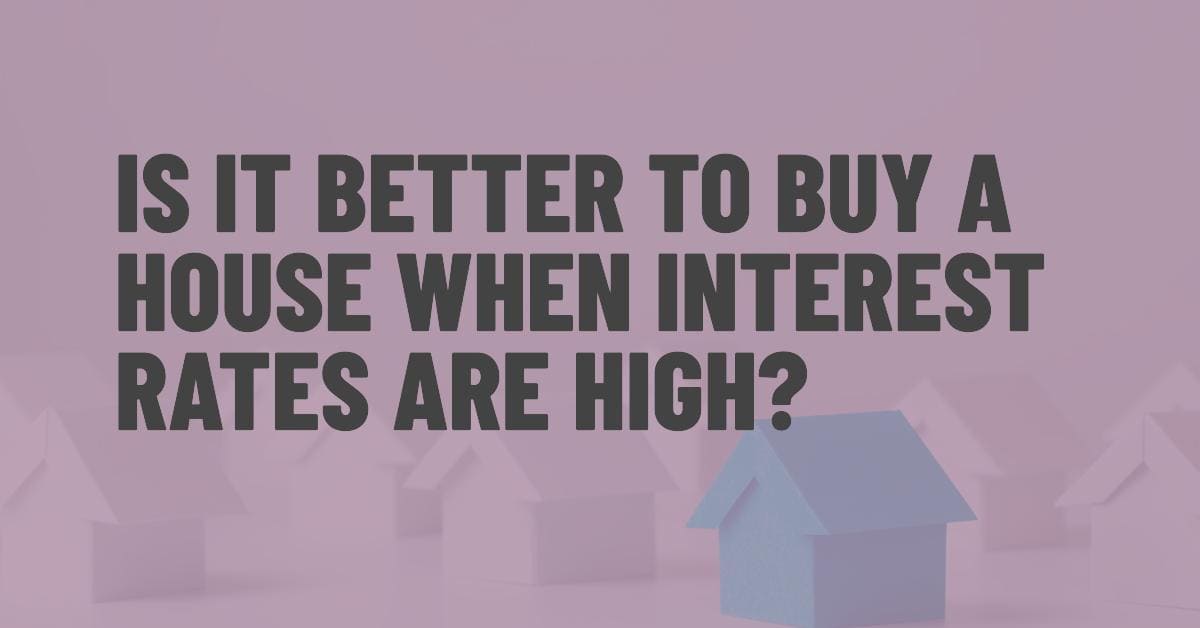The decision to buy a house is a significant one, often influenced by a variety of economic factors, including interest rates. High interest rates can lead to higher monthly mortgage payments and overall borrowing costs, which may deter potential homebuyers. However, there are scenarios where buying a house when interest rates are high could be advantageous.
For instance, high rates can sometimes result in less competition and more negotiating power for buyers, potentially leading to better deals on home prices. It's also worth considering that if interest rates are expected to rise further, securing a mortgage at the current rate might be more beneficial in the long run.
As for the Federal Reserve's actions, it's important to note that while they do not directly set mortgage rates, their policies influence the economic environment that affects these rates. Recent statements from the Fed suggest that they are not in a hurry to cut interest rates, with a narrow majority of officials penciling in three rate cuts for 2024. This indicates a cautious approach towards easing policy, likely dependent on economic data and inflation trends.
For those pondering whether to buy a home in 2024, it's crucial to stay informed about the Federal Reserve's policy changes and the broader economic climate. While some analysts expect rate cuts to begin as early as May 2024, others suggest that the Fed might maintain higher rates to continue fighting inflation. This uncertainty underscores the importance of personal financial planning and consulting with financial advisors to make the best decision based on individual circumstances and market conditions.
Is It Better to Buy a House When Interest Rates Are High?
Interest rates are a powerful economic tool that can influence consumer behavior, investment decisions, and overall economic growth. When interest rates are high, borrowing becomes more expensive, which can slow down economic activities such as home buying and construction. This, in turn, can have a ripple effect on related industries, including real estate, home improvement, and retail.
The Role of Inflation in Interest Rate Determination
Inflation is another critical factor that central banks, like the Federal Reserve, consider when setting interest rates. High inflation typically leads to higher interest rates as a measure to cool down the economy and stabilize prices. Conversely, low inflation or deflation might prompt a cut in interest rates to encourage borrowing and spending. Therefore, understanding inflation trends is vital for predicting interest rate movements and making informed housing market decisions.
The Psychological Aspect of Buying a Home During High Interest Rates
The psychological impact of high interest rates on potential homebuyers cannot be understated. It can create a sense of urgency to lock in rates before they climb higher or cause hesitation due to the increased cost of borrowing. Homebuyers' perceptions and expectations of future interest rate trends can significantly influence their decision to buy now or wait.
Alternative Financing Options in a High-Interest Environment
In a high-interest-rate environment, exploring alternative financing options becomes increasingly important. Adjustable-rate mortgages (ARMs), for instance, may offer lower initial rates compared to fixed-rate mortgages, providing some relief to homebuyers. Additionally, government-backed loans, grants, and first-time homebuyer programs can offer advantageous terms that make purchasing a home more accessible, even when rates are high.
The Long-Term View: Equity Building and Market Cycles
Taking a long-term perspective is crucial when considering a home purchase. Real estate typically appreciates over time, allowing homeowners to build equity despite the ebb and flow of interest rates. Moreover, the housing market moves in cycles, and what may seem like an unfavorable time to buy could potentially lead to substantial gains as the market recovers and grows.
The Fed's Forward Guidance and Market Predictions
The Federal Reserve's forward guidance is a communication strategy used to shape market expectations about the future path of interest rates. By analyzing the Fed's statements and economic projections, market participants can glean insights into the likelihood of rate cuts or hikes. However, these predictions are not set in stone and are subject to change based on new economic data.
In summary, the interplay between interest rates, inflation, and the housing market is complex and multifaceted. While high interest rates pose challenges, they also present opportunities for strategic homebuyers. Keeping abreast of economic indicators, alternative financing options, and the Fed's policy stance will empower consumers to navigate the housing market with confidence, regardless of the interest rate environment. Remember, consulting with financial advisors and conducting thorough research is indispensable when making such a life-changing decision as buying a home.
Thus, the question of whether to buy a house when interest rates are high does not have a one-size-fits-all answer. It requires a careful assessment of the market, future rate projections, and one's financial situation. As for the Federal Reserve's rate decisions in 2024, potential homebuyers should monitor the economic indicators and Fed communications for insights into future rate adjustments. Making an informed decision in such a fluctuating market is key to successful homeownership.




